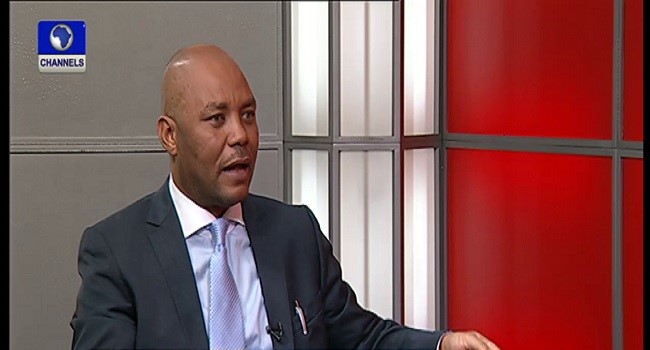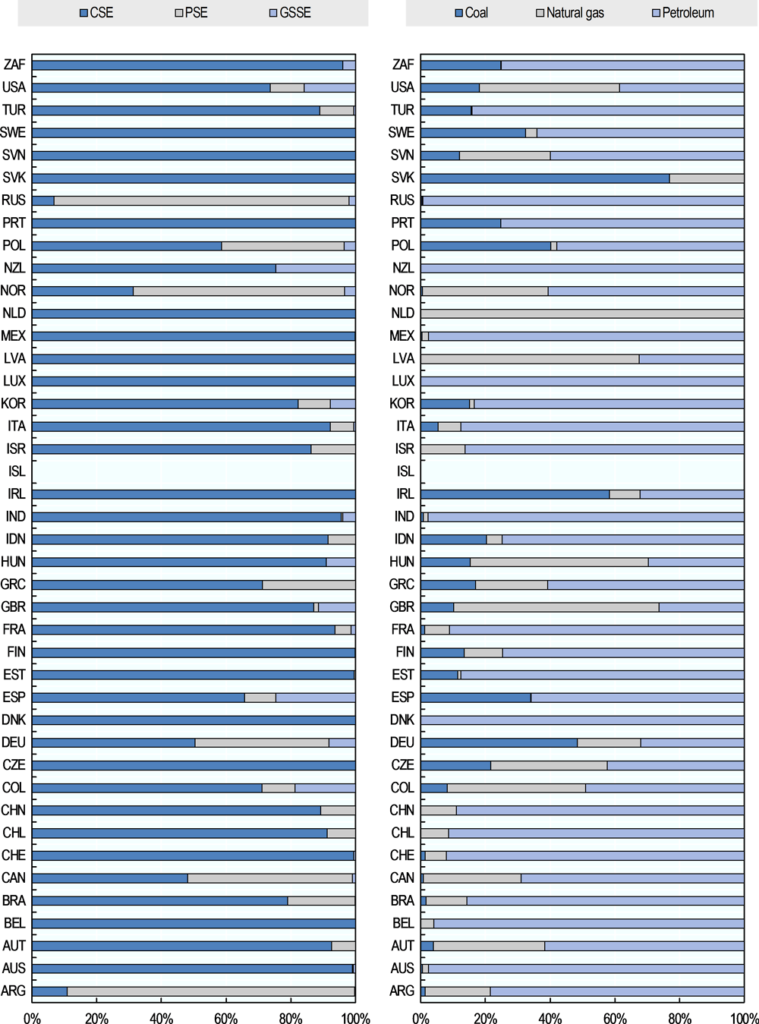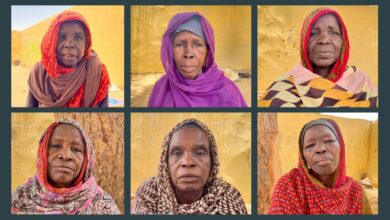Fact check: Is Nigeria The Only Country With A Petrol Subsidy Programme? No

A Nigerian economist said during a live television broadcast that Nigeria is the only country in the world with a government policy that subsidises petroleum products.
Findings, however, showed this to be incorrect as the latest statistics from the International Energy Agency (IEA) and Organisation for Economic Co-operation and Development (OECD) list many other countries with similar programmes.
Full text
Infrastructure economist and managing partner at TTL Group, Dr Onuoha Nnachi, has claimed that Nigeria is the only country where petroleum products (petrol, diesel, and kerosene) are subsidised by the government, but this claim is not true.
“If we do full deregulation, I will guarantee you, in three to six months, there will be market price stabilisation,” Dr Nnachi said on Tuesday, September 8, while giving his final remarks on Sunrise Daily, a programme aired on Channels Television.
“Whether you think you are subsidising for the rich or subsidising for the poor, there is nowhere in the world that petroleum products are subsidised,” he added. “Rather, you can subsidise transportation. Work out how to subsidise transportation … and the sector will flow naturally and there will be no complaint about it.”
Channels TV is said to have a broadcast audience of over 20 million people.
Some background
Fuel subsidy is a programme where the government pays for some of the production costs of fuel, especially petroleum products, to make such products more affordable for consumers.
Echoing an earlier announcement by the Nigerian National Petroleum Corporation (NNPC), President Muhammadu Buhari stated on Monday that there is no provision for fuel subsidies in the 2020 budget, which was signed in June. He explained that with a 60 per cent reduction in revenue, the country just cannot afford to sustain the payments “if reasonable provisions must be made for health, education and other social services.”
Justifying the decision, the Information Minister, Lai Mohammed, said the government spent an average of N743.8 billion every year between 2006 and 2019 on fuel subsidy, summing up to N10.4 trillion. Experts, including former governor of the Central Bank of Nigeria, Sanusi Lamido Sanusi, and managing director of the International Monetary Fund, Christine Lagarde, had in the past called for an end to the subsidy regime.
But is Nigeria the only country in the world where the government pays heavily to make petroleum products more affordable for its citizens?
Verification
Data on 44 countries collected by the Organisation for Economic Co-operation and Development (OECD), an intergovernmental group, showed that a total of $178 billion was spent by these countries in 2019 to subsidise energy products. $12 billion was spent on coal, $21 billion on electricity, $13 billion on natural gas, and the largest amount, $131 billion, was spent on subsidising petroleum.
The data provides an insight that backs Dr Nnachi’s recommendation that the transportation sector should be subsidised instead to cushion the effect of deregulation. According to the OECD, support for the transportation and fossil fuel production sectors was estimated at $54 billion each.
Further analysis of combined data from 77 countries including both OECD figures and price-gap estimates from the International Energy Agency showed that those countries spent $270 billion and $121 billions subsidising petroleum and natural gas respectively in 2019.
Using data from August 2016, Global Petrol Prices, a widely referenced platform that monitors retail energy prices in countries around the world, identified 15 countries that subsidised petrol prices. However, in oil-producing countries, none of them had market-determined retail prices.
The countries include Algeria, Azerbaijan, Bahrain, Ecuador, Iran, Kazakhstan, Kuwait, Malaysia, Nigeria, Oman, Qatar, Saudi Arabia, Turkmenistan, United Arab Emirates, and Venezuela.
“It is also interesting to note which countries are not on the list. For example, Russia and Mexico, both of which are important oil producers and both heavily subsidize their fossil fuels industry according to data from the International Energy Agency are not included. In other words, although these countries are oil producers and subsidise their oil industries, their citizens do not pay a lower price than what they would pay in a competitive, unregulated market,” the platform added.
“In fact, there are many countries in the same situation including Argentina, Indonesia Trinidad and Tobago, and Uzbekistan. Those countries subsidise their fossil fuel industries but their citizens pay more than the competitive benchmark price of gasoline.”
On its website, also using 2016 data, the IEA lists 34 countries where fossil-fuel consumption is subsidised.
The more up-to-date OECD report, published in 2018, noted that at least 39 member and partner countries provided subsidies for petroleum products. These included Korea, Luxemburg, Mexico, Slovenia, Sweden, Turkey, USA, among others.

Conclusion
Based on publicly available data from the International Energy Agency and Organisation for Economic Co-operation and Development, it is false to claim that there is no other country in the world where petroleum products are subsidised as was the case in Nigeria. While the IEA lists 34 countries with fossil-fuel consumption subsidies, OECD’s report has highlighted up to 39 of such countries.
The researcher produced this fact-check per the Dubawa 2020 Fellowship partnership with HumAngle to facilitate the ethos of “truth” in journalism and enhance media literacy in the country.
Support Our Journalism
There are millions of ordinary people affected by conflict in Africa whose stories are missing in the mainstream media. HumAngle is determined to tell those challenging and under-reported stories, hoping that the people impacted by these conflicts will find the safety and security they deserve.
To ensure that we continue to provide public service coverage, we have a small favour to ask you. We want you to be part of our journalistic endeavour by contributing a token to us.
Your donation will further promote a robust, free, and independent media.
Donate Here





Can’t people make their point on matters of interest without making false sweeping statements?
How can the citizens be convinced there is no funds when there are questionable transparency issues among government officials coupled with jumbo pay packages for National and State Legislators.